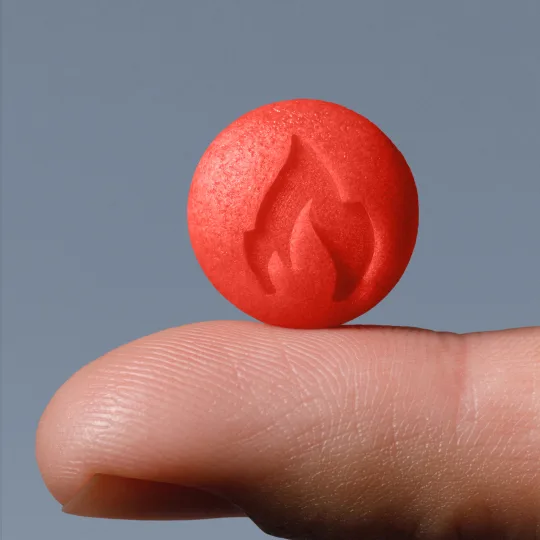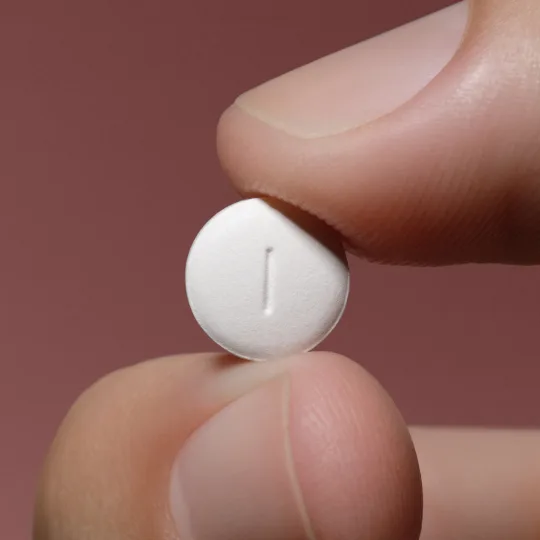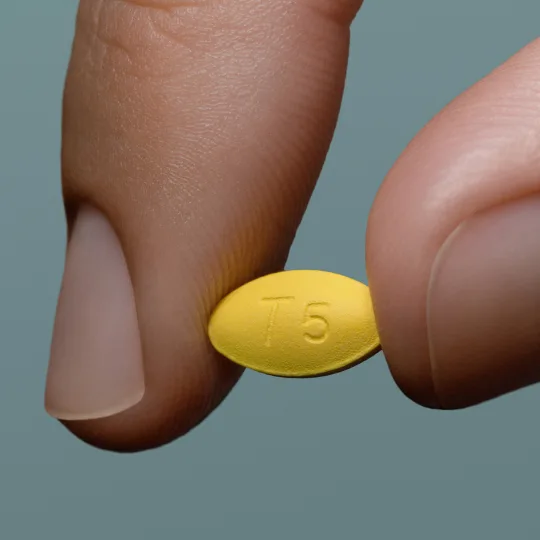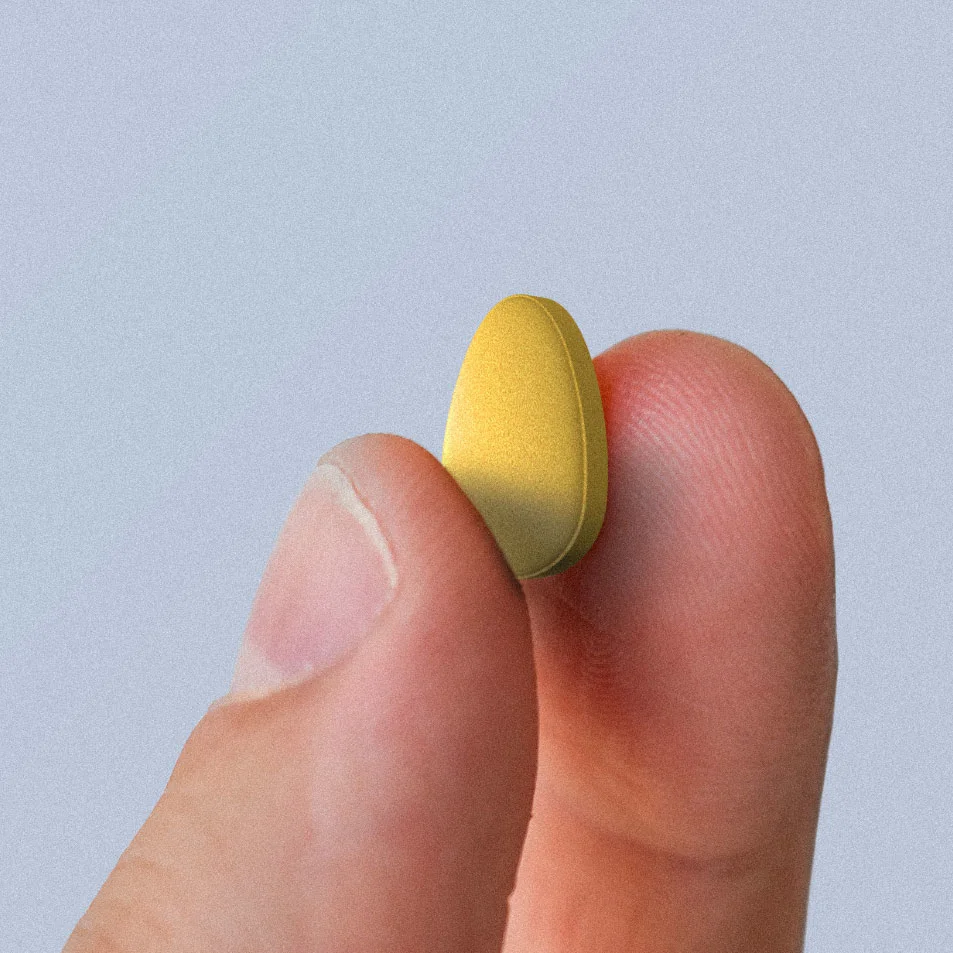Key takeaways
There’s no specific amount of time you “should” be lasting in bed, but if you’re consistently losing your erection or ejaculating before you and your partner have been able to achieve satisfying sex, it’s time to intervene.
At least 30% of men experience premature ejaculation (PE) at some point in time, and there are specific techniques that can help with PE (like the squeeze method or start-stop technique).
Lifestyle modifications (such as eating a healthy diet and maintaining a healthy weight) can help with both PE and erectile dysfunction (ED).
In some cases, medication might be necessary.
Mental health struggles can contribute to ED and PE, but going through ED or PE can also contribute to mental health struggles, so be sure to prioritize your mental health.
Here's what we'll cover
Key takeaways
There’s no specific amount of time you “should” be lasting in bed, but if you’re consistently losing your erection or ejaculating before you and your partner have been able to achieve satisfying sex, it’s time to intervene.
At least 30% of men experience premature ejaculation (PE) at some point in time, and there are specific techniques that can help with PE (like the squeeze method or start-stop technique).
Lifestyle modifications (such as eating a healthy diet and maintaining a healthy weight) can help with both PE and erectile dysfunction (ED).
In some cases, medication might be necessary.
Mental health struggles can contribute to ED and PE, but going through ED or PE can also contribute to mental health struggles, so be sure to prioritize your mental health.
You dream of a day when every time (or at least most times) you have sex with a partner, you’re able to last long enough that both you and your partner come away satisfied—and you deserve that. So, if you’re not currently lasting as long as you’d like to in bed, it might be time for some interventions.
We’ve got you covered in this article with 15 possible ways to boost your staying power in the bedroom.
Why you might be having issues lasting longer in bed
There are a lot of possible reasons and ways you might be struggling to last as long as you’d like in bed, but the two most common are premature ejaculation and erectile dysfunction.
Premature ejaculation
Premature ejaculation (PE) is when someone ejaculates sooner than they’d like during sexual activity. The exact amount of time will differ from person to person, though. Whether ejaculation can be classified as “premature” depends largely on the person and their partner’s satisfaction.
PE is extremely common to experience at some point in time. Most researchers agree at least 30% of men experience PE at any given time, but some estimates are as high as 75%.
Why do so many men experience PE at some point in time? It can come from underlying health conditions, like hormonal imbalances, diabetes, or infections in the urethra or prostate—just to name a few. But it can also come from psychological factors, like depression or anxiety, relationship problems, or even from drinking too heavily.
In other words, PE is often a symptom of another underlying cause, so it’s no wonder so many men experience it at one time or another.
Erectile dysfunction (ED)
ED is when you can’t get or maintain an erection that’s hard enough for satisfying sex (for you or your partner). Sometimes, ED and PE can happen at the same time, and may contribute to each other. For example, if you have been experiencing PE lately, you might develop some performance anxiety around sex, and that can make it more difficult to get and maintain a hard erection.
Like PE, ED can come from a wide range of causes, including medical causes like cardiovascular disease, obesity, and hypertension. Smoking and alcohol dependence are also risk factors. And, of course, there are psychological factors that can come into play as well.
Often, treating ED can alleviate symptoms of PE.
How long should a man last before ejaculating?
You might wonder if the time it takes you to ejaculate is “normal.” But there really isn’t a solid answer to what an average ejaculation time looks like. But it’s probably shorter than you think.
One study gathered information from men in five countries to assess the average time to ejaculation. They found the majority of men ejaculated after four minutes or more from the moment of penetration. Another study of 500 couples found that the average time until ejaculation for vaginal sex ranged from 3–7 minutes, with duration decreasing with age.
Of course, these numbers don’t capture the whole picture. The studies only examined heterosexual couples, meaning a whole range of other demographics weren’t surveyed. The time also only measured penetrative vaginal sex and didn’t take time spent on foreplay into account.
A 2020 study on men with PE, though, did look across the spectrum of sexuality. The study found consistent timing of around 1.5 minutes as the believed cut-off for premature ejaculation—in both heterosexual and non-heterosexual men.
Another thing to keep in mind is that society gives us a bit of a skewed understanding of how long we’re supposed to last. While “going all night” might sound like a goal, the truth is that most people (including sex therapists) find sex lasting between 3–13 minutes to be perfectly satisfactory.
With that said, there are plenty of people out there who find that they can’t last longer than a few seconds, or up to a minute or so, during penetrative sex. As we discussed above, that’s a case of PE, or premature ejaculation, which at least a third of men experience at some point.
When that’s the case, or if you can’t get or maintain an erection that lasts long enough for pleasurable sex (aka erectile dysfunction), there may be room to try some tips and tricks that can help you last longer in bed.
How to last longer in bed
To find the right strategy for lasting longer in bed, you need to identify the root of your concern. Some methods will focus on you, while others address your partner’s pleasure. Here are 15 tips that may help you delay ejaculation in bed.
1. Use more foreplay
If you’re worried about your partner's satisfaction, adding in or increasing foreplay can be a good strategy. Communicate with your partner to find what they like and take your time. This is especially true for heterosexual couples, since there tends to be a gap between how long it takes men and women to finish.
While everyone is different, in general, women require direct clitoral stimulation to orgasm, and often find it more difficult to finish from penetrative sex alone, since the clitoris doesn’t come into direct contact with the penis during penetrative sex. One survey of over 50,000 people found that just 18% of women reported experiencing an orgasm from vaginal penetration alone.
Starting with fingerplay, oral sex, or asking your partner what they love is a great way to bridge the orgasm gap and improve sexual satisfaction to ensure that you last long enough for both of you to enjoy sex.
2. Try edging
Edging can help extend the time it takes to orgasm, though it takes some practice to get right. What is edging, you ask? This technique is when you get very close to ejaculation, but then stop until the feeling has passed. These pauses can calm things down and keep your sex session lasting longer.
There are a few different methods for edging. You can try the stop-start method, which is when you pause sex or masturbation until you no longer feel like you're going to finish.
3. Stop-start technique
The stop-start technique is where your partner stimulates your penis, whether with their hand, mouth, or through penetration. Then, as soon as you feel like you’re going to orgasm, your partner will stop and you’ll wait for the urge to pass. Then, you’ll resume activity until you feel the urge again, at which point you’ll stop again. Do this as many times as you can to prolong sex with your partner.
4. Give the squeeze technique a go
There is also the squeeze technique, which goes hand-in-hand (no pun intended) with the stop-start technique. When you feel the urge to ejaculate, you’ll stop, but now, you or your partner will squeeze the head of your penis until you feel the urge pass and feel as though you can keep going.
You can also try squeezing internally, by contracting your pelvic floor muscles (but we’ll talk about that in more detail down below).
Have better sex with Ro
5. Bring sex toys into the bedroom
If there’s a gap between when you finish and when your partner does, using a toy they like can help close the gap. The great thing about sex toys is the endless variety. You can try using a vibrator during sex or foreplay to focus on getting your partner to that sweet spot faster.
6. Try masturbating before sex
This option may take some experimentation to get right, but some experts believe that ejaculating before sex might help you last longer because your penis is likely less sensitive after the refractory period. There isn’t a ton of research to back this up just yet, so this is something you’ll need to play around with if you decide to try it.
Try to find a time for masturbation close enough to sex so you’re not too worked up before it starts, but that still leaves enough time for you to get excited and enjoy sex as you should after a refractory period.
7. Use thicker condoms
Thicker condoms create a more significant barrier, which may decrease the intensity of sensation during sex. If what you’re feeling is less intense than usual, it could take you longer to ejaculate. That’s why thicker condoms are commonly marketed for extended pleasure.
And, indeed, one small study showed this marketing tactic holds some water. While many of the men in the study found thicker condoms to be less comfortable, they were effective at prolonging intercourse.
There’s little risk in trying this approach since condoms are usually cheap and offer the added benefit of protecting against sexually transmitted infections (STIs), too.
8. Explore different sex positions
There’s a reason they say, “Variety is the spice of life.” Adopting that motto in the bedroom can help you last longer in bed. Things necessarily slow down, if only for a moment, when you change sex positions, which may help bring you back from that “point of no return.” Plus, different positions can be more or less stimulating for you or your partner. And you might discover a new favorite position (or two)!
9. Strengthen your pelvic floor muscles
There is a physical component to PE that historically hasn’t gotten much attention. Those would be your pelvic floor muscles, and strengthening them could help improve PE and ED. That’s because your pelvic floor muscles are tightly linked to your penis, and a healthy pelvic floor is an important part of healthy erections and ejaculation.
Kegels are a good pelvic floor exercise, and they aren’t just for women. To perform kegels, focus on lifting and pulling in your pelvic floor without using your back or butt muscles to help. Squeeze the muscles down there like you’re trying to hold in pee or prevent yourself from passing gas. That squeeze you feel is your pelvic floor muscles contracting.
Repeat that squeeze 10–15 times, holding each for three seconds and relaxing for three. Do this at least three times every day. It’s okay if you can’t do a full set of 15 kegels on your first day. Keep at it and work your way up. Pelvic floor physical therapists can help guide you through these exercises if you are unsure how to do them or need additional help or advice to see if they are right for you.
10. Try numbing products and desensitizers
Certain wipes use benzocaine as the active ingredient, which has a mild numbing effect. Benzocaine wipes are generally used on the most sensitive parts of the penis like the frenulum, which is the connective tissue on the underside of the penis that runs between the head and shaft. You use these wipes about five minutes before sex. Be sure to allow the substance to dry before sex so it doesn’t transfer to your partner.
Preliminary research on these wipes is promising. In one study, the average time to ejaculate increased by 5.5 minutes after two months of using the wipes (compared to an increase of under 2 minutes in the placebo group). Participants also felt less performance anxiety and better control over their orgasms when they used them.
In addition to benzocaine wipes, topical sprays and creams are also available. These products usually contain benzocaine or lidocaine, which are local anesthetics. The goal of these products is to decrease sensitivity which can potentially delay an orgasm and increase control over ejaculation.
11. Work toward a healthy weight
Studies have documented a link between premature ejaculation and metabolic syndrome, which refers to a cluster of health conditions often associated with overweight and obesity. These include:
Abdominal obesity
High blood pressure
High blood sugar levels, prediabetes, and diabetes
High blood triglycerides, or “bad” cholesterol
Low HDL, or “good,” cholesterol
In one study, people with metabolic syndrome were almost twice as likely to have premature ejaculation. If you have obesity, getting in better shape and losing weight may help you last longer in bed, with the added plus of giving you more sexual stamina. If you’re struggling to lose weight, consider looking into Ro’s Body program to see if it’s right for you. After getting evaluated by a qualified medical professional, you may be eligible for treatment with medications like Ozempic or Zepbound, which can be helpful for losing weight and keeping it off.
Ozempic Important Safety Information: Read more about serious warnings and safety info.
Zepbound Important Safety Information: Read more about serious warnings and safety info.
12. Change your diet and incorporate healthy habits
A heart-healthy diet can be beneficial for all aspects of your health, including your erectile function and ability to last longer in bed.
One large 2020 review study showed that men who followed the Mediterranean diet (often touted as the most heart-healthy diet) were at considerably lower risk for developing erectile dysfunction. More research still needs to be done on the Mediterranean diet and PE, but the fact is, there is enough information linking a better diet to erectile health (not to mention overall health) to give it a try.
While we are on the topic of changing your habits, quitting smoking and exercising more have also been shown to improve erectile function
13. Consider medication
Prescription medication may be a good option, especially if less invasive interventions don’t do the trick. Although there are no FDA-approved medications specifically for PE, there’s some evidence that PDE5 inhibitors (the same drugs used to treat ED) can help improve ejaculatory control and sexual satisfaction in men with PE.
You’re probably familiar with some of the drugs in this class, like sildenafil (brand name Viagra) and tadalafil (brand name Cialis). These drugs work for ED by blocking the enzyme PDE5, which allows the blood vessels to relax and more blood to flow into the penis. The theory for how this helps with PE is it can give men more ejaculatory confidence. Some evidence also suggests these medications can shorten the refractory period—so, even if you do ejaculate quickly, you’re more likely to be able to get another erection fairly quickly.
Some other medications that might be used to treat PE include antidepressants like selective serotonin reuptake inhibitors (SSRIs), Tramadol (an opioid that also has effects on serotonin in the brain), and certain alpha blockers—all as off-label treatments. Remember not to try numerous medications at once unless explicitly advised to by your healthcare provider.
Viagra Important Safety Information: Read more about serious warnings and safety info.
Cialis Important Safety Information: Read more about serious warnings and safety info.
14. Look into adult circumcision
Circumcision may feel like an extreme option, but it could have merit, according to one study of over 1,000 men with premature ejaculation. Participants were split into two groups, and one group underwent adult circumcision (removal of the penis foreskin). At a one-year follow-up, the group that got circumcised reported being able to last longer during sex, with better control over when they ejaculated and improved satisfaction with the sex they were having.
However, other researchers have found conflicting results indicating that a foreskin might actually help you last longer. Furthermore, circumcision is a procedure and all procedures carry the risk of complications. If you have tried other options and are interested in discussing this, bring it up at your next visit with your healthcare provider so you can get a better understanding of potential pros and cons.
15. Take care of your mental health
Sexual dysfunction like ED and PE are often closely linked with mental health—in both directions. Mental health issues like depression, anxiety, stress, and relationship troubles can cause or worsen ED and PE; at the same time, struggling with these issues can cause your mental health to suffer.
Regardless of which is causing the other, it’s important to take care of your mental health. A qualified therapist can help. Most therapists have some experience with many aspects of ED, PE, and all the related mental health struggles that can go along with those, but you may also want to explore working with a certified sex therapist, whose expertise will be more specific to these issues. They can guide you on techniques, like biofeedback, visualization, cognitive distraction, and others that can help you last longer in bed.
How do you want to improve your sex life?
Stronger erections
Longer lasting erections
Get hard, faster
All of the above
Bottom line: how to last longer in bed
If you’re struggling to last as long as you’d like in bed—whether that’s because your erections aren’t lasting long enough or you’re ejaculating too quickly—it might be time to speak with your healthcare professional.
Premature ejaculation (PE) and erectile dysfunction (ED) are the most common issues, often linked to physical or mental health.
Methods like the stop-start technique, edging, and pelvic floor exercises can help improve control.
Eating a healthy diet, maintaining a healthy weight, and reducing stress can support better sexual performance.
If lifestyle and behavioral techniques aren’t enough, medications or numbing creams may help you last longer in bed.
Many of the tips and techniques we’ve suggested here can be practiced on your own, and if they work, great! But remember, your healthcare provider is there to guide you and help you try other treatments as needed.
DISCLAIMER
If you have any medical questions or concerns, please talk to your healthcare provider. The articles on Health Guide are underpinned by peer-reviewed research and information drawn from medical societies and governmental agencies. However, they are not a substitute for professional medical advice, diagnosis, or treatment.
Allen, M. S. & Walter, E. E. (2018). Health-related lifestyle factors and sexual dysfunction: A meta-analysis of population-based research. The Journal of Sexual Medicine, 15(4), 458–475. doi: 10.1016/j.jsxm.2018.02.008. Retrieved from https://pubmed.ncbi.nlm.nih.gov/29523476/
Bauer, S. R., Breyer, B. N., Stampfer, M. J., et al. (2020). Association of diet with erectile dysfunction among men in the health professionals follow-up study. JAMA Network Open, 3(11), e2021701. doi: 10.1001/jamanetworkopen.2020.21701. Retrieved from https://pubmed.ncbi.nlm.nih.gov/33185675/
Bolat, D., Kocabas, G. U., Gunlusoy, B., et al. (2017). The relationship between acquired premature ejaculation and metabolic syndrome: a prospective, comparative study. International Journal of Impotence Research, 29(3), 105–109. doi: 10.1038/ijir.2017.3. Retrieved from https://pubmed.ncbi.nlm.nih.gov/28179637/
Côté-Léger, P. & Rowland, D. L. (2020). Estimations of typical, ideal, premature ejaculation, and actual latencies by men and female sexual partners of men during partnered sex. The Journal of Sexual Medicine, 17(8), 1448–1456. doi: 10.1016/j.jsxm.2020.04.317. Retrieved from https://pubmed.ncbi.nlm.nih.gov/32507609/
Crowdis, M. & Nazir, S. (2023). Premature ejaculation. StatPearls. Retrieved on Nov. 26, 2024 from https://www.ncbi.nlm.nih.gov/books/NBK546701/
El-Hamd, M. A., Saleh, R., & Majzoub, A. (2019). Premature ejaculation: an update on definition and pathophysiology. Asian Journal of Andrology, 21(5), 425–432. doi: 10.4103/aja.aja_122_18. Retrieved from https://pmc.ncbi.nlm.nih.gov/articles/PMC6732885/
Frederick, D. A., John, H. K. S., Garcia, J. R., et al. (2018). Differences in orgasm frequency among gay, lesbian, bisexual, and heterosexual men and women in a U.S. National sample. Archives of Sexual Behavior, 47, 273–288. doi: 10.1007/s10508-017-0939-z. Retrieved from https://link.springer.com/article/10.1007/s10508-017-0939-z
Gao, J., Xu, C., Zhang, J., et al. (2015). Effects of adult male circumcision on premature ejaculation: results from a prospective study in China. BioMed Research International, 2015, 417846. doi: 10.1155/2015/417846. Retrieved from https://www.ncbi.nlm.nih.gov/pmc/articles/PMC4324807/
Giuliano, F., Patrick, D. L., Porst, H., et al. (2008). Premature ejaculation: results from a five-country European observational study. European Urology, 53(5), 1048–1057. doi: 10.1016/j.eururo.2007.10.015. Retrieved from https://pubmed.ncbi.nlm.nih.gov/17950985/
Leslie, S.W. & Sooriyamoorthy, T. (2024). Erectile dysfunction. StatPearls. Retrieved on Nov. 27, 2024 from https://www.ncbi.nlm.nih.gov/books/NBK562253/
Martin, C., Nolen, H., Podolnick, J., et al. (2017). Current and emerging therapies in premature ejaculation: Where we are coming from, where we are going. International Journal of Urology: Official Journal of the Japanese Urological Association, 24(1), 40–50. doi: 10.1111/iju.13202. Retrieved from https://onlinelibrary.wiley.com/doi/10.1111/iju.13202
Myers, C. & Smith, M. (2019). Pelvic floor muscle training improves erectile dysfunction and premature ejaculation: a systematic review. Physiotherapy, 105(2), 235–243. doi: 10.1016/j.physio.2019.01.002. Retrieved from https://pubmed.ncbi.nlm.nih.gov/30979506/
Nakajima, K., Nagao, K., Tai, T., et al. (2010). Duration of sexual intercourse related to satisfaction: survey of Japanese married couples. Reproductive Medicine and Biology, 9(3), 139–144. doi: 10.1007/s12522-010-0049-2. Retrieved from https://pmc.ncbi.nlm.nih.gov/articles/PMC5904652/
National Institute of Health (NIH). (2021). Kegel Exercises. Retrieved on Nov. 26, 2024 from https://www.niddk.nih.gov/health-information/urologic-diseases/kegel-exercises
Raveendran, A. V. & Agarwal, A. (2021). Premature ejaculation - current concepts in the management: A narrative review. International Journal of Reproductive Biomedicine, 19(1), 5–22. doi: 10.18502/ijrm.v19i1.8176. Retrieved from https://www.ncbi.nlm.nih.gov/pmc/articles/PMC7851481/
Shabsigh, R., Shabsigh, R., Kaminetsky, J., et al. (2017). Pd69-02 double-blind, randomized controlled trial of topical 4% benzocaine wipes for management of premature ejaculation: interim analysis. The Journal of Urology, 197(4S), e1344-e1345. https://doi.org/10.1016/j.juro.2017.02.3143. Retrieved from https://www.auajournals.org/doi/10.1016/j.juro.2017.02.3143
Sultan, M.I., Ibrahim, S.A. & Youssef, R.F. (2024). Impact of a Mediterranean diet on prevention and management of urologic diseases. BMC Urology 24, 48. doi: 10.1186/s12894-024-01432-9. Retrieved from https://bmcurol.biomedcentral.com/articles/10.1186/s12894-024-01432-9
Waldinger, M. D., Quinn, P., Dilleen, M., et al. (2005). A multinational population survey of intravaginal ejaculation latency time. The Journal of Sexual Medicine, 2(4), 492–497. doi: 10.1111/j.1743-6109.2005.00070.x. Retrieved from https://pubmed.ncbi.nlm.nih.gov/16422843/
Wang, Z. & Yu, J. (2022). Efficacy evaluation of thickened condom in the treatment of premature ejaculation. Translational Andrology and Urology, 11(2), 253–259. doi: 10.21037/tau-22-8. Retrieved from https://pubmed.ncbi.nlm.nih.gov/35280666/


















